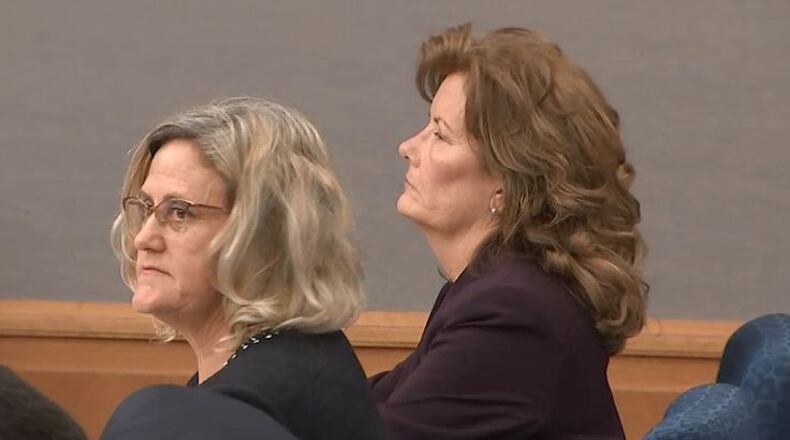A date has been set for the retrial of Gwinnett County Superior Court Judge Kathryn Schrader, whose computer trespass case stumped a jury last month.
And a new attorney will be joining the prosecution this time around.
Schrader — who is accused of providing a private investigator and two contractors improper access to the Gwinnett County computer network — is now scheduled to be tried again the week of April 27.
Sheila Ross will join the team from the Prosecuting Attorneys’ Council of Georgia that’s presenting the case against the judge. Ross and colleague John Regan will hope to make a more convincing argument than the one that deadlocked last month’s jury, resulting in a mistrial.
Schrader is charged with three counts of felony computer trespass in the convoluted case that originally involved three co-defendants (all who later reached agreements with the prosecution to avoid their own trials).
According to previous evidence and testimony, a series of strange technology issues in the early months of 2019 led Schrader to suspect that someone was trying to hack into her work computer. Believing the Gwinnett County IT department was not taking her concerns seriously — and reportedly fearing that a courthouse "conspiracy" could be afoot — she hired private investigator T.J. Ward.
A contractor working for Ward, former Forsyth County sheriff’s deputy Frank Karic, subsequently installed a WireShark traffic monitoring device on Schrader’s computer. Another contractor — Ed Kramer, the co-founder of pop culture convention DragonCon and a registered sex offender — was then tasked with analyzing the data collected by the WireShark.
Schrader admitted to her role in the events but argued she had no choice but to solicit outside help and did nothing illegal. The prosecution, meanwhile, contended that her activities amounted to her facilitating illegal access to the Gwinnett County computer network.
The jury foreperson from the original trial told The Atlanta Journal-Constitution that the prosecution’s case left too many key questions unanswered.
A new jury will be seated to consider the case when it’s presented again in April.
About the Author
Keep Reading
The Latest
Featured



